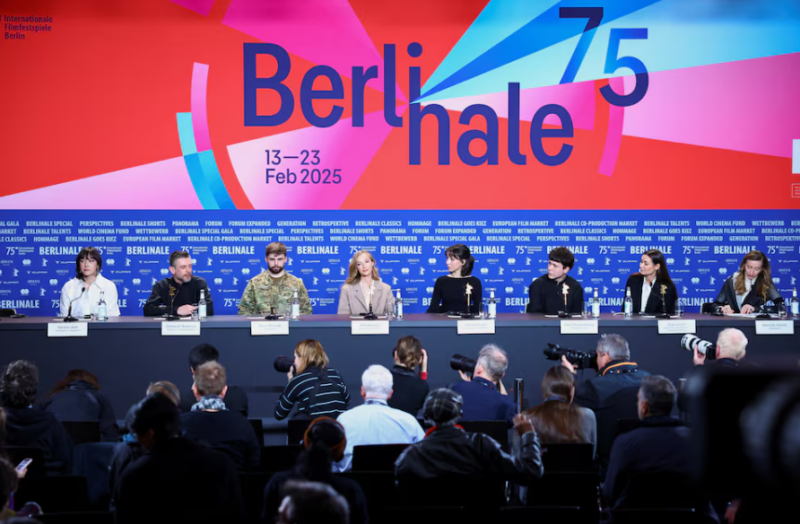
For Ukrainian director Kateryna Gornostai, her new documentary, “Timestamp,” about daily school life during Russia’s now three-year-long invasion, had its Berlin Film Festival premiere at a key moment for her homeland.
“It’s really crucial,” Gornostai told Reuters in the German capital on Thursday.
“I feel like I’m not a filmmaker, but a delegation of diplomats. In a way we are all, because the teachers and our protagonists are here,” she added.
“These are real people from Ukraine that are working there, staying there and struggling to be not insane in the moment.”
“Timestamp” is the first Ukrainian-directed film to compete for the festival’s Golden Bear top prize in nearly 30 years. The only documentary in the competition is up against 18 other films, with the winner announced on Saturday.
It comes as recent comments by U.S. President Donald Trump have heightened concerns among European allies that his approach to ending the Russia-Ukraine conflict could benefit Moscow.
According to a U.N. official, more than 12,650 civilians have been killed since the start of the war. Russia now controls about 20% of Ukraine and has carried out frequent strikes on cities and towns far from the eastern and southern front lines.
Gornostai, whose debut feature film “Stop-Zemlia” also premiered at the Berlinale, in 2021, expressed hope that viewers would see her new film and “maybe make a lot of good decisions about what to do”.
“Timestamp” shows classrooms across Ukraine at varying distances from the frontline. Scenes of students learning a dance for their graduation day are interspersed with lessons taking place in bunkers due to air raid sirens.
Variety magazine called it “a beautifully observed” documentary, while Screen Daily described it as “powerful”.
Gornostai said she decided to focus on schools because they had an element of hope. “It’s about this young generation that stays and it thrives. So we need to support it and respect it,” she said.









